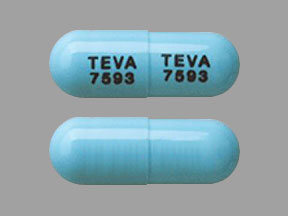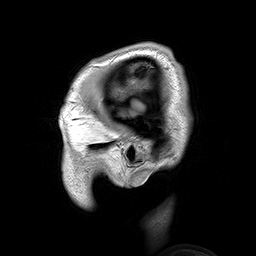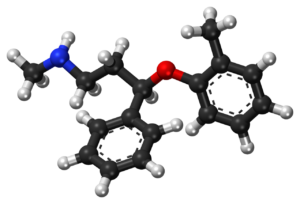Two weeks ago, I posted about the beginning of my ADHD treatment journey, and I talked about my first day on Atomoxetine, a sNRI medication for ADHD that is also sold under the name Strattera.
 Unfortunately, after some initially hopeful results, the rest of my titration has been fairly unremarkable. The feeling that my brain had more capacity has remained, though after the initial feeling that hasn’t borne a great deal of fruit; and my wife has noted that I’ve been remembering and noticing things a bit better over the last two weeks (though, counterpoint, I forgot to take the trash out to the curb today for the first time in months). In addition, as far as focus goes, I’ve had more “good days” and fewer “bad days,” which is certainly nothing to sneeze at. It’s certainly not making things worse.
Unfortunately, after some initially hopeful results, the rest of my titration has been fairly unremarkable. The feeling that my brain had more capacity has remained, though after the initial feeling that hasn’t borne a great deal of fruit; and my wife has noted that I’ve been remembering and noticing things a bit better over the last two weeks (though, counterpoint, I forgot to take the trash out to the curb today for the first time in months). In addition, as far as focus goes, I’ve had more “good days” and fewer “bad days,” which is certainly nothing to sneeze at. It’s certainly not making things worse.
 But the real problems I’ve been encountering —focus, attention, and executive function—haven’t seen particularly spectacular results. Neither the good days nor the bad days are better than they were before, there are just slightly more of one and slightly fewer of the other; and honestly, that’s what I would expect around this time of year anyway, with the sun coming up earlier and staying up later. After a week, I assumed it was just the lower dose; then, I thought maybe I was just not seeing changes that were actually happening. But when I heard about the results a friend of mine encountered when she got on a different medication, and how dramatically her life had changed, I could tell that I wasn’t experiencing the same thing.
But the real problems I’ve been encountering —focus, attention, and executive function—haven’t seen particularly spectacular results. Neither the good days nor the bad days are better than they were before, there are just slightly more of one and slightly fewer of the other; and honestly, that’s what I would expect around this time of year anyway, with the sun coming up earlier and staying up later. After a week, I assumed it was just the lower dose; then, I thought maybe I was just not seeing changes that were actually happening. But when I heard about the results a friend of mine encountered when she got on a different medication, and how dramatically her life had changed, I could tell that I wasn’t experiencing the same thing.
Everything came to a head today, at the two week point. Work today went well; but I’ve had good days before the medication. It was when I realized that it was no better than one of my best days before medication that I decided to write up this post, and in the process of composing it in my mind (I’m writing this while rocking a baby to sleep), I realized that the takeaway would probably be that Atomoxetine just isn’t doing it for me. I’m sure it’s great for some people, but barring any sudden improvements before then, I’m going to tell my provider at my next appointment that I’d like something else.
So what’s next?
I’m not entirely sure. The stimulant shortage continues, at least partially due to an increase in prescribing; according to the CDC,
Prescription stimulant use, primarily for the treatment of attention-deficit/hyperactivity disorder (ADHD), has increased among adults in the United States during recent decades, while remaining stable or declining among children and adolescents. [Since the pandemic], the percentage of enrollees with one or more prescription stimulant fills increased from 3.6% in 2016 to 4.1% in 2021. The percentages of females aged 15–44 years and males aged 25–44 years with prescription stimulant fills increased by more than 10% during 2020–2021.
To make matters worse, the DEA has not increased their manufacturing limits on the controlled substances, meaning that drug makers cannot legally keep up with demand. All of which means I’m not likely to have an easy time finding a stimulant medication in stock, though some of my friends’ experiences give me hope in that regard.
All of which means I’m not likely to have an easy time finding a stimulant medication in stock, though some of my friends’ experiences give me hope in that regard.
So I don’t actually know what’s next. I’ll certainly bring all of these concerns to my provider at our next appointment, but that’s another two weeks away. In the meantime, I’ll continue taking the medication I have and monitoring for any sudden improvements.
In any case, I’ll be updating you here. The reaction from my first account of my journey was overwhelming; thank you for all of your kind words of support. It’s not over yet.



There’s a reason the doctor wanted to wait a month before seeing you again. I don’t blame you for being impatient, but two weeks probably isn’t enough time to know how much this may help you. I know you know this. It’s good to know you aren’t feeling worse.
I’m an adult female who has taken medication for ADD for about 30 years. Motherhood pushed me past capacity in a way that demanded a diagnosis and treatment. My daughter subsequently needed and started on medication and responded well. Both of us took stimulants, from different chemical groups, though she suffered in ways I had not, and her meds fell short by a good deal. At one point, and I now forget why, she was prescribed Strattera, which was very new on the market, and everyone thought this was going to transform treatment, especially for children, who at the time were still the bulk of those being treated with medication. Well, we were not impressed. It did help her with transitions; she was able to stop doing one thing and start another. But that was it. All her other symptoms were unaffected. As it turned out, Strattera didn’t transform the field, and the most effective medication for ADHD is still neurostimulants.
I have tried stimulant meds from 3 chemical groups and there is one that is clearly most effective, for me. The methylphenidate (MPH, or Ritalin and all the more recently developed ones that derive from it) molecule is the one that does me the most good in the realm of executive function, which is the symptom set that plagues me the most.
My sister does better on the dexamphetamine group. And then there is the Dexedrine molecule, which I pretty much hated before I even got near a therapeutic dose. My point here is not that you should do what I do, because which group is best for you is still unknown. I am only illustrating how they aren’t the same and don’t have the same effect, even in family members who share a lot of chromosomes.
I do recommend you do as I did in terms of trying each group in turn, and systematically. That can be hard to do when the doctor involved has only a rudimentary grasp of how the medications work, and so is imprecise and doesn’t pay attention to the details that matter. Another recommendation is a book about medications specifically. I was well acquainted some years ago with its author, and know him to be a profoundly competent, dedicated, and compassionate person and one of these days he’s going to retire. He may still be doing consultations long distance, I am not sure.
The book is “Medication Rules” and the his name is Chuck Parker, DO. He’s been doing psychiatry for many years so don’t be put off by his not being an MD. (I’ve met more than my share of MDs who were kind of useless, so there’s that). It’s a short book that should have had more editing, but the information it contains will help you in your present journey a lot.
As for the shortage, yes, it’s a hard time to be getting started, but the shortage doesn’t seem to extend to all the stimulants. I’ve had no trouble obtaining my prescriptions. Maybe right now is the time to do some trials of the different chemical groups to determine which works best *for you*, and when you have that figured out, exact dosing (quantity and frequency) can be handled after that. I mean, what if the medication that works best for you turns out to be one that there aren’t shortages of?
Continue to press for what you need. The cognitive demands of having a baby, then a toddler, and beyond, are significant and managing the logistics of living only gets more complicated.
I wish you luck and good doctoring. If I can remember, I will follow along to see how you are doing.
I erred twice in my lengthy comment yesterday. The book is “ADHD Medication Rules.” My other error was in thinking you’re a first time father. Ha, already have three, you know the terrain.
Pingback: My Adult ADHD Experience, Month Two – Epic Whim